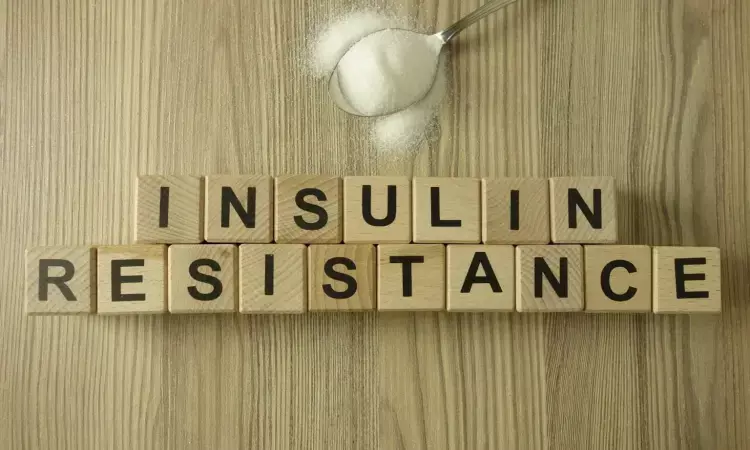- Home
- Medical news & Guidelines
- Anesthesiology
- Cardiology and CTVS
- Critical Care
- Dentistry
- Dermatology
- Diabetes and Endocrinology
- ENT
- Gastroenterology
- Medicine
- Nephrology
- Neurology
- Obstretics-Gynaecology
- Oncology
- Ophthalmology
- Orthopaedics
- Pediatrics-Neonatology
- Psychiatry
- Pulmonology
- Radiology
- Surgery
- Urology
- Laboratory Medicine
- Diet
- Nursing
- Paramedical
- Physiotherapy
- Health news
- Fact Check
- Bone Health Fact Check
- Brain Health Fact Check
- Cancer Related Fact Check
- Child Care Fact Check
- Dental and oral health fact check
- Diabetes and metabolic health fact check
- Diet and Nutrition Fact Check
- Eye and ENT Care Fact Check
- Fitness fact check
- Gut health fact check
- Heart health fact check
- Kidney health fact check
- Medical education fact check
- Men's health fact check
- Respiratory fact check
- Skin and hair care fact check
- Vaccine and Immunization fact check
- Women's health fact check
- AYUSH
- State News
- Andaman and Nicobar Islands
- Andhra Pradesh
- Arunachal Pradesh
- Assam
- Bihar
- Chandigarh
- Chattisgarh
- Dadra and Nagar Haveli
- Daman and Diu
- Delhi
- Goa
- Gujarat
- Haryana
- Himachal Pradesh
- Jammu & Kashmir
- Jharkhand
- Karnataka
- Kerala
- Ladakh
- Lakshadweep
- Madhya Pradesh
- Maharashtra
- Manipur
- Meghalaya
- Mizoram
- Nagaland
- Odisha
- Puducherry
- Punjab
- Rajasthan
- Sikkim
- Tamil Nadu
- Telangana
- Tripura
- Uttar Pradesh
- Uttrakhand
- West Bengal
- Medical Education
- Industry
Circulating Insulin-like peptide 5 levels closely linked to insulin resistance among patients with PCOS

A new study published in Journal of Diabetes and its Complications suggests that Circulating Insulin-like peptide 5 levels are closely linked to insulin resistance among patients with PCOS. This implies that the relationship between circulating Insulin-like peptide 5 (INSL5) levels and polycystic ovary syndrome (PCOS) may be due to increased insulin resistance.
Both in vitro and in vivo metabolic systems benefit from insulin-like peptide 5. Therefore, it was hypothesized in this work by Yijie Chen and colleagues that INSL5 levels are related to the occurrence of insulin resistance (IR) and polycystic ovarian syndrome (PCOS).
An enzyme-linked immunosorbent test was used to determine the levels of circulating INSL5 in the PCOS group (n = 101) and control group (n = 78) groups. Regression models were used to assess the connection between INSL5 and IR.
The key findings of this study were:
1. In those with PCOS, the levels of circulating INSL5 were higher (P 0.001), and they were also substantially correlated with the homeostasis model evaluation of insulin resistance (HOMA-IR, r = 0.434, P 0.001; HOMA-IS, r = 0.432; QUICKI, r = 0.504, P 0.001) and insulin resistance.
2. After adjusting for relevant confounders, the participants with the highest tertile of INSL5 levels were more likely to develop PCOS (odds ratio: 12.591, 95% confidence range 2.616-60.605) than those with the lowest tertile.
3. After controlling for covariates, multiple linear regression analysis also revealed an independent relationship between INSL5 levels and HOMA-IR ( = 0.024, P 0.001).
The findings of this study demonstrated a favorable correlation between the prevalence of PCOS in the Chinese population and the levels of circulating INSL5. Several metabolic-hormonal markers, such as insulin resistance and lipid metabolism parameters, were correlated with INSL5. Furthermore, these findings suggested that IR is probably a mediator in the link between INSL5 and PCOS. Additional research is required to determine the potential function of INSL5.
Reference:
Chen, Y., Chen, J., Li, Y., Wu, Y., Wu, X., Zhang, H., & Zhang, Z. (2023). Insulin-like peptide 5 is associated with insulin resistance in women with polycystic ovary syndrome. In Journal of Diabetes and its Complications (Vol. 37, Issue 7, p. 108493). Elsevier BV. https://doi.org/10.1016/j.jdiacomp.2023.108493
Neuroscience Masters graduate
Jacinthlyn Sylvia, a Neuroscience Master's graduate from Chennai has worked extensively in deciphering the neurobiology of cognition and motor control in aging. She also has spread-out exposure to Neurosurgery from her Bachelor’s. She is currently involved in active Neuro-Oncology research. She is an upcoming neuroscientist with a fiery passion for writing. Her news cover at Medical Dialogues feature recent discoveries and updates from the healthcare and biomedical research fields. She can be reached at editorial@medicaldialogues.in
Dr Kamal Kant Kohli-MBBS, DTCD- a chest specialist with more than 30 years of practice and a flair for writing clinical articles, Dr Kamal Kant Kohli joined Medical Dialogues as a Chief Editor of Medical News. Besides writing articles, as an editor, he proofreads and verifies all the medical content published on Medical Dialogues including those coming from journals, studies,medical conferences,guidelines etc. Email: drkohli@medicaldialogues.in. Contact no. 011-43720751


